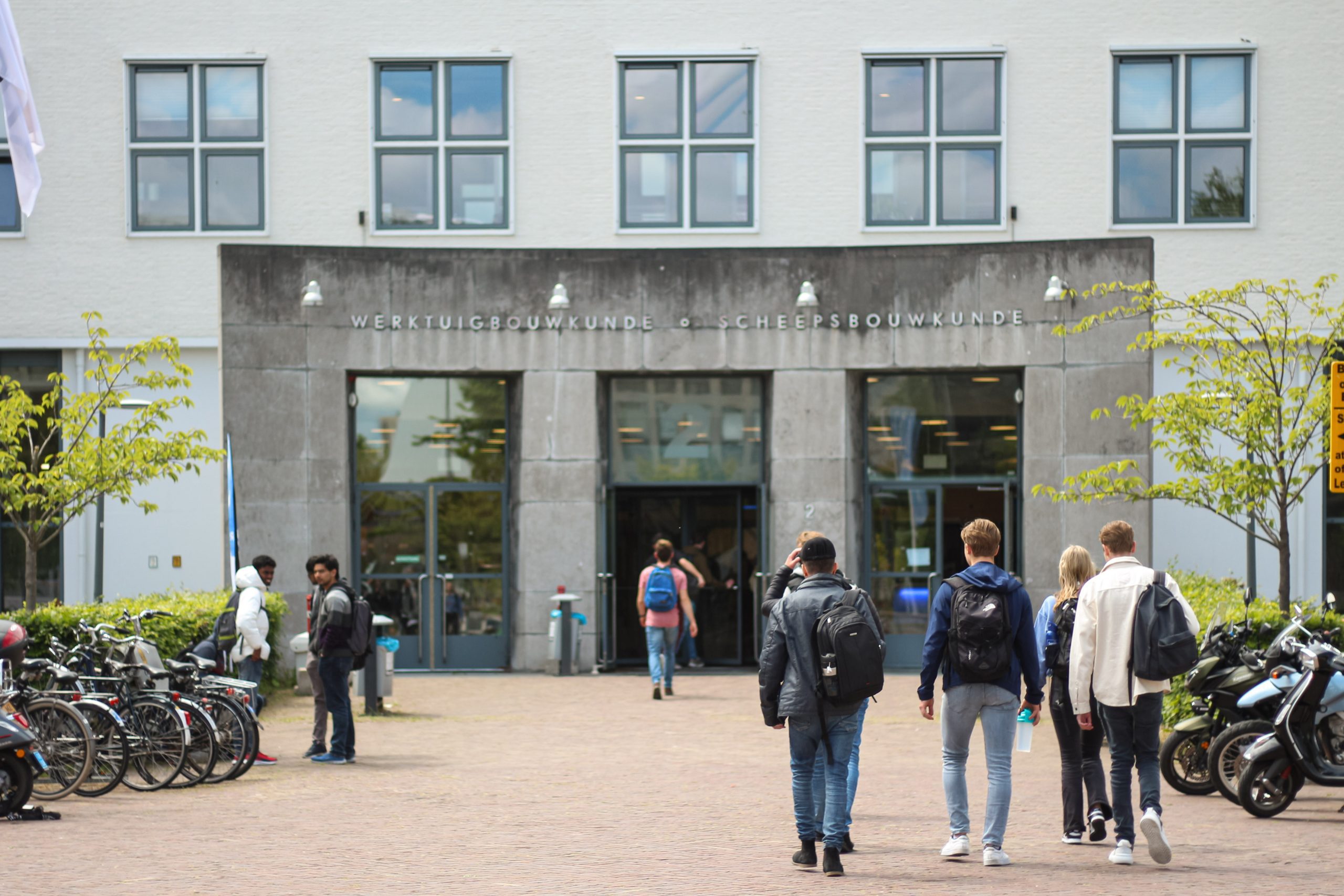Six scientists who fled Ukraine are working at TU Delft. The number at national level is not known. The Young Academy argues for a central registration point and more grants.
Three of the six scientists who fled from Ukraine working at TU Delft are part of 3mE. (Photo: Justyna Botor)
The Young Academy, the platform for young academics, recently published a report about academics who fled to the Netherlands. It states that there are 13 Ukrainian academics who fled and are now working at Dutch universities. This number could be outdated (May 2022) and, even more uncertain, as there is no reliable nationwide list, this number may not be right.
At the time, the platform was informed by a TU Delft spokesperson that there were no academics who fled Ukraine working at TU Delft. At the request of Delta, the Human Resources (HR) department checked again with the faculties. It now appears that there are six people. Three of them work at the Faculty of Mechanical, Maritime and Materials Engineering (3mE), two at Civil Engineering and Geosciences (CEG), and one at Applied Sciences.
Central registration point
HR did not check if they were already at TU Delft in May 2022. For the Young Academy, the fact that this number was not listed centrally proves that a central registration point is desirable. And not only to check the numbers. It would help in arranging the appointment of refugee academics. At present, tax regulations may stand in the way of extending temporary grants by universities themselves, making them reluctant to do so.
‘Stability is desirable if you have had to flee’
The platform primarily argues for grants not being extended by universities themselves, but by organisations such as Scholars at risk NL or Nuffic. The Minister of Education, Culture and Science and his colleagues from the Ministry of Finance and the Labour Authority could guarantee that there would be no financial consequences for extending temporary grants to refugee academics. The Young Academy also argues for expanding the Dutch Research Council’s (NWO) Hestia grants for academics who have fled and want to reside permanently in the Netherlands.
A suitable means
None of the six scientists at TU Delft have a grant. Five have a regular temporary contract, one has a visiting appointment. HR therefore reports not recognising the outlined problems with scholarships as disguised appointments.
Marie-José van Tol, Chair of the Young Academy, sees it as ‘good news’ that there are academics working at TU Delft who fled Ukraine. Nevertheless, she still believes that there are too few grants for refugee academics in the Netherlands who fled from everywhere. She also fears that a temporary contract such as that at TU Delft ‘is not a suitable means for many’ as ‘there are limits to extending it’. “If a permanent appointment is not possible, people should try to find a place at another university. Some degree of stability is desirable if you have had to flee.”
Van Tol also points out that there are a lot of candidates for regular vacancies with regular procedures. “This means that a refugee academic will often be at a disadvantage for various reasons such as the language or publishing history.”
The recommendations of the Young Academy refer to refugee academics of all nationalities and not just Ukrainians. HR also investigated for Delta whether there are refugee academics from other countries working in the faculties. This is not the case. In the past, there was one researcher from Turkey at CEG and one from Syria at Technology, Policy and Management. They had grants from Scholars at Risk.
HOP, Hein Cuppen / Delta, Saskia Bonger
Do you have a question or comment about this article?
s.m.bonger@tudelft.nl


Comments are closed.